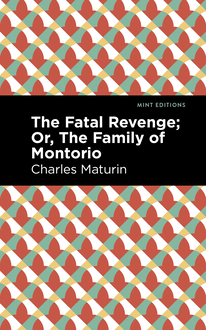-
 Univers
Univers
-
 Ebooks
Ebooks
-
 Livres audio
Livres audio
-
 Presse
Presse
-
 Podcasts
Podcasts
-
 BD
BD
-
 Documents
Documents
-
- Cours
- Révisions
- Ressources pédagogiques
- Sciences de l’éducation
- Manuels scolaires
- Langues
- Travaux de classe
- Annales de BEP
- Etudes supérieures
- Maternelle et primaire
- Fiches de lecture
- Orientation scolaire
- Méthodologie
- Corrigés de devoir
- Annales d’examens et concours
- Annales du bac
- Annales du brevet
- Rapports de stage
La lecture à portée de main
Vous pourrez modifier la taille du texte de cet ouvrage
Découvre YouScribe en t'inscrivant gratuitement
Je m'inscrisDécouvre YouScribe en t'inscrivant gratuitement
Je m'inscrisEn savoir plus
Vous pourrez modifier la taille du texte de cet ouvrage
En savoir plus

Description
The Lair of the White Worm (1911) is a novel by Irish author Bram Stoker. Published only a year before Stoker’s death, The Lair of the White Worm helped to establish the Irish master of Gothic horror’s reputation as a leading writer of the early-twentieth century. The novel is partly based on the legend of the Lambton Worm, a story from popular English folklore dating back to at least the 14th century.
In 1860, an Australian named Adam Salton is contacted by his great-uncle, who invites him to make a visit to England. Arriving by boat in Southampton, Salton is greeted by the elderly Richard, who surprisingly names him heir of the family estate in Derbyshire. When he gets to Lesser Hill, he is quickly overwhelmed by terrifying and mysterious events. His neighbor, Edgar Cawall, is a strange man obsessed with mesmerism and protecting his crops from pigeons. At his own estate, Salton is forced to use mongooses to combat an infestation of black snakes. Meanwhile, a local woman named Arabella March appears to be involved in a series of strange disappearances rumored to have something to do with the legendary White Worm, an ancient creature haunting the landscape of rural Derbyshire. The Lair of the White Worm is a gripping work of Gothic horror by Bram Stoker, the secretive and vastly underrated creator of Dracula, one of history’s greatest villains.
With a beautifully designed cover and professionally typeset manuscript, this edition of Bram Stoker’s The Lair of the White Worm is a classic of Irish literature reimagined for modern readers.
Sujets
Informations
| Publié par | Mint Editions |
| Date de parution | 09 février 2021 |
| Nombre de lectures | 0 |
| EAN13 | 9781513276489 |
| Langue | English |
| Poids de l'ouvrage | 3 Mo |
Informations légales : prix de location à la page 0,0450€. Cette information est donnée uniquement à titre indicatif conformément à la législation en vigueur.
Extrait
The Lair of the White Worm
Bram Stoker
The Lair of the White Worm was first published in 1911.
This edition published by Mint Editions 2021.
ISBN 9781513271484 | E-ISBN 9781513276489
Published by Mint Editions®
minteditionbooks .com
Publishing Director: Jennifer Newens
Design & Production: Rachel Lopez Metzger
Project Manager: Micaela Clark
Typesetting: Westchester Publishing Services
C ONTENTS I. A DAM S ALTON A RRIVES II. T HE C ASWALLS OF C ASTRA R EGIS III. D IANA ’ S G ROVE IV. T HE L ADY A RABELLA M ARCH V. T HE W HITE W ORM VI. H AWK AND P IGEON VII. O OLANGA VIII. S URVIVALS IX. S MELLING D EATH X. T HE K ITE XI. M ESMER ’ S C HEST XII. T HE C HEST O PENED XIII. O OLANGA ’ S H ALLUCINATIONS XIV. B ATTLE R ENEWED XV. O N THE T RACK XVI. A V ISIT OF S YMPATHY XVII. T HE M YSTERY OF “T HE G ROVE ” XVIII. E XIT O OLANGA XIX. A N E NEMY IN THE D ARK XX. M ETABOLISM XXI. G REEN L IGHT XXII. A T C LOSE Q UARTERS XXIII. I N THE E NEMY ’ S H OUSE XXIV. A S TARTLING P ROPOSITION XXV. T HE L AST B ATTLE XXVI. F ACE TO F ACE XXVII. O N THE T URRET R OOF XXVIII. T HE B REAKING OF THE S TORM
I
A DAM S ALTON A RRIVES
A dam Salton sauntered into the Empire Club, Sydney, and found awaiting him a letter from his grand-uncle. He had first heard from the old gentleman less than a year before, when Richard Salton had claimed kinship, stating that he had been unable to write earlier, as he had found it very difficult to trace his grand-nephew’s address. Adam was delighted and replied cordially; he had often heard his father speak of the older branch of the family with whom his people had long lost touch. Some interesting correspondence had ensued. Adam eagerly opened the letter which had only just arrived, and conveyed a cordial invitation to stop with his grand-uncle at Lesser Hill, for as long a time as he could spare.
“Indeed,” Richard Salton went on, “I am in hopes that you will make your permanent home here. You see, my dear boy, you and I are all that remain of our race, and it is but fitting that you should succeed me when the time comes. In this year of grace, 1860, I am close on eighty years of age, and though we have been a long-lived race, the span of life cannot be prolonged beyond reasonable bounds. I am prepared to like you, and to make your home with me as happy as you could wish. So do come at once on receipt of this, and find the welcome I am waiting to give you. I send, in case such may make matters easy for you, a banker’s draft for 200 pounds. Come soon, so that we may both of us enjoy many happy days together. If you are able to give me the pleasure of seeing you, send me as soon as you can a letter telling me when to expect you. Then when you arrive at Plymouth or Southampton or whatever port you are bound for, wait on board, and I will meet you at the earliest hour possible.”
O LD M R . S ALTON WAS DELIGHTED WHEN Adam’s reply arrived and sent a groom hot-foot to his crony, Sir Nathaniel de Salis, to inform him that his grand-nephew was due at Southampton on the twelfth of June.
Mr. Salton gave instructions to have ready a carriage early on the important day, to start for Stafford, where he would catch the 11.40 A . M . train. He would stay that night with his grand-nephew, either on the ship, which would be a new experience for him, or, if his guest should prefer it, at a hotel. In either case they would start in the early morning for home. He had given instructions to his bailiff to send the postillion carriage on to Southampton, to be ready for their journey home, and to arrange for relays of his own horses to be sent on at once. He intended that his grand-nephew, who had been all his life in Australia, should see something of rural England on the drive. He had plenty of young horses of his own breeding and breaking, and could depend on a journey memorable to the young man. The luggage would be sent on by rail to Stafford, where one of his carts would meet it. Mr. Salton, during the journey to Southampton, often wondered if his grand-nephew was as much excited as he was at the idea of meeting so near a relation for the first time; and it was with an effort that he controlled himself. The endless railway lines and switches round the Southampton Docks fired his anxiety afresh.
As the train drew up on the dockside, he was getting his hand traps together, when the carriage door was wrenched open and a young man jumped in.
“How are you, uncle? I recognised you from the photo you sent me! I wanted to meet you as soon as I could, but everything is so strange to me that I didn’t quite know what to do. However, here I am. I am glad to see you, sir. I have been dreaming of this happiness for thousands of miles; now I find that the reality beats all the dreaming!” As he spoke the old man and the young one were heartily wringing each other’s hands.
The meeting so auspiciously begun proceeded well. Adam, seeing that the old man was interested in the novelty of the ship, suggested that he should stay the night on board, and that he would himself be ready to start at any hour and go anywhere that the other suggested. This affectionate willingness to fall in with his own plans quite won the old man’s heart. He warmly accepted the invitation, and at once they became not only on terms of affectionate relationship, but almost like old friends. The heart of the old man, which had been empty for so long, found a new delight. The young man found, on landing in the old country, a welcome and a surrounding in full harmony with all his dreams throughout his wanderings and solitude, and the promise of a fresh and adventurous life. It was not long before the old man accepted him to full relationship by calling him by his Christian name. After a long talk on affairs of interest, they retired to the cabin, which the elder was to share. Richard Salton put his hands affectionately on the boy’s shoulders—though Adam was in his twenty-seventh year, he was a boy, and always would be, to his grand-uncle.
“I am so glad to find you as you are, my dear boy—just such a young man as I had always hoped for as a son, in the days when I still had such hopes. However, that is all past. But thank God there is a new life to begin for both of us. To you must be the larger part—but there is still time for some of it to be shared in common. I have waited till we should have seen each other to enter upon the subject; for I thought it better not to tie up your young life to my old one till we should have sufficient personal knowledge to justify such a venture. Now I can, so far as I am concerned, enter into it freely, since from the moment my eyes rested on you I saw my son—as he shall be, God willing—if he chooses such a course himself.”
“Indeed I do, sir—with all my heart!”
“Thank you, Adam, for that.” The old, man’s eyes filled and his voice trembled. Then, after a long silence between them, he went on: “When I heard you were coming I made my will. It was well that your interests should be protected from that moment on. Here is the deed—keep it, Adam. All I have shall belong to you; and if love and good wishes, or the memory of them, can make life sweeter, yours shall be a happy one. Now, my dear boy, let us turn in. We start early in the morning and have a long drive before us. I hope you don’t mind driving? I was going to have the old travelling carriage in which my grandfather, your great-grand-uncle, went to Court when William IV. was king. It is all right—they built well in those days—and it has been kept in perfect order. But I think I have done better: I have sent the carriage in which I travel myself. The horses are of my own breeding, and relays of them shall take us all the way. I hope you like horses? They have long been one of my greatest interests in life.”
“I love them, sir, and I am happy to say I have many of my own. My father gave me a horse farm for myself when I was eighteen. I devoted myself to it, and it has gone on. Before I came away, my steward gave me a memorandum that we have in my own place more than a thousand, nearly all good.”
“I am glad, my boy. Another link between us.”
“Just fancy what a delight it will be, sir, to see so much of England—and with you!”
“Thank you again, my boy. I will tell you all about your future home and its surroundings as we go. We shall travel in old-fashioned state, I tell you. My grandfather always drove four-in-hand; and so shall we.”
“Oh, thanks, sir, thanks. May I take the ribbons sometimes?”
“Whenever you choose, Adam. The team is your own. Every horse we use to-day is to be your own.”
“You are too generous, uncle!”
“Not at all. Only an old man’s selfish pleasure. It is not every day that an heir to the old home comes back. And—oh, by the way… No, we had better turn in now—I shall tell you the rest in the morning.”
II
T HE C ASWALLS OF C ASTRA R EGIS
M r. Salton had all his life been an early riser, and necessarily an early waker. But early as he woke on the next morning—and although there was an excuse for not prolonging sleep in the constant whirr and rattle of the “donkey” engine winches of the great ship—he met the eyes of Adam fixed on him from his berth. His grand-nephew had given him the sofa, occupying the lower berth himself. The old man, despite his great strength and normal activity, was somewhat tired by his long journey of the day before, and the prolonged and exciting interview which followed it. So he was glad to lie still and rest his body, whilst his mind was actively exercised in taking in all he could of his strange surroundings. Adam, too, after the pastoral habit to which he had been bred, woke with the dawn, and was ready to enter on the experiences of the new day whenever it might suit his elder companion. It was little wonder, then, that, so soon as each realised the other’s readiness, they simultaneously jumped up and began to dress. The steward had by previous instructions early breakfast prepared,
-
 Univers
Univers
-
 Ebooks
Ebooks
-
 Livres audio
Livres audio
-
 Presse
Presse
-
 Podcasts
Podcasts
-
 BD
BD
-
 Documents
Documents
-
Jeunesse
-
Littérature
-
Ressources professionnelles
-
Santé et bien-être
-
Savoirs
-
Education
-
Loisirs et hobbies
-
Art, musique et cinéma
-
Actualité et débat de société
-
Jeunesse
-
Littérature
-
Ressources professionnelles
-
Santé et bien-être
-
Savoirs
-
Education
-
Loisirs et hobbies
-
Art, musique et cinéma
-
Actualité et débat de société
-
Actualités
-
Lifestyle
-
Presse jeunesse
-
Presse professionnelle
-
Pratique
-
Presse sportive
-
Presse internationale
-
Culture & Médias
-
Action et Aventures
-
Science-fiction et Fantasy
-
Société
-
Jeunesse
-
Littérature
-
Ressources professionnelles
-
Santé et bien-être
-
Savoirs
-
Education
-
Loisirs et hobbies
-
Art, musique et cinéma
-
Actualité et débat de société
- Cours
- Révisions
- Ressources pédagogiques
- Sciences de l’éducation
- Manuels scolaires
- Langues
- Travaux de classe
- Annales de BEP
- Etudes supérieures
- Maternelle et primaire
- Fiches de lecture
- Orientation scolaire
- Méthodologie
- Corrigés de devoir
- Annales d’examens et concours
- Annales du bac
- Annales du brevet
- Rapports de stage




















